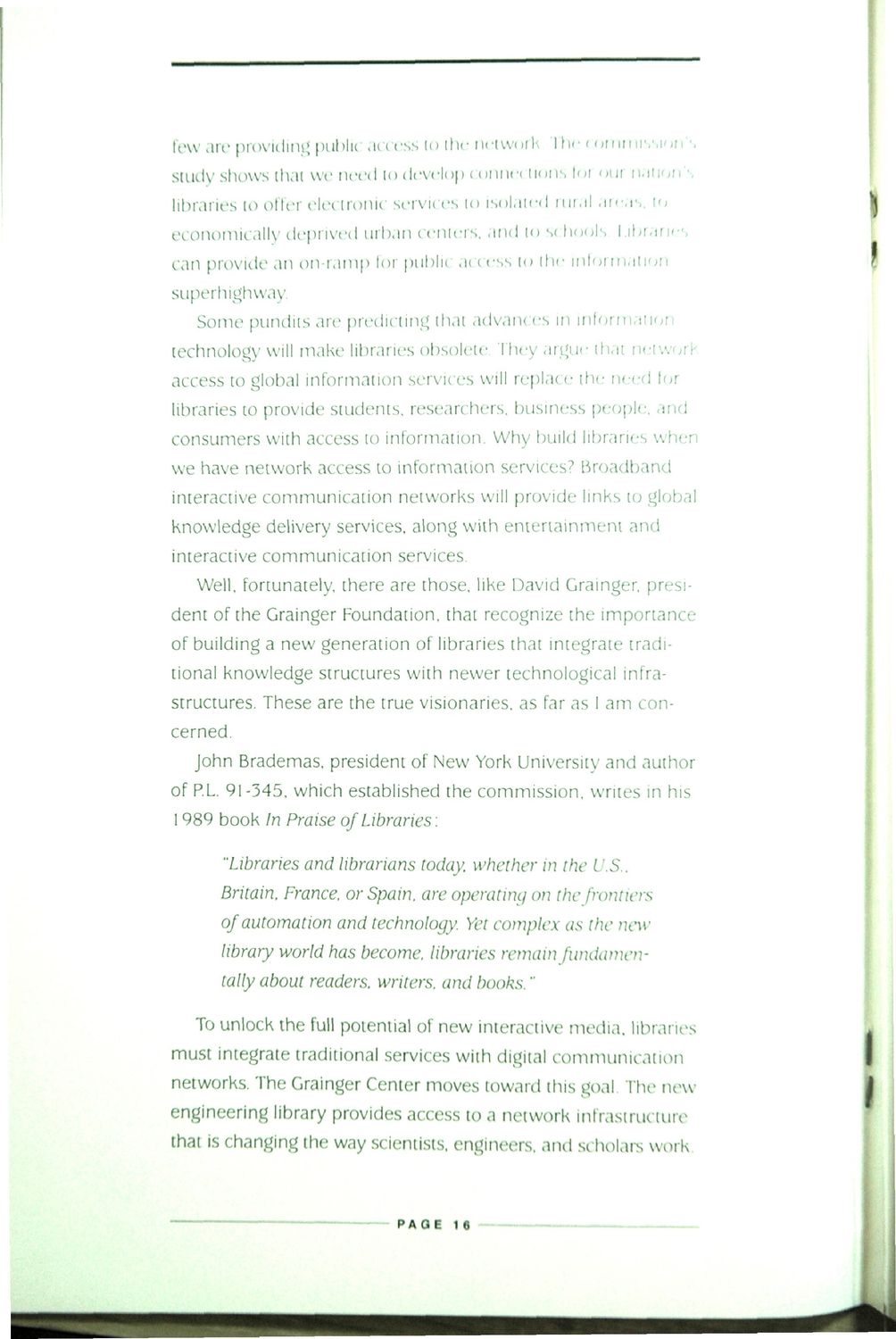| |
| |
Caption: Dedication - Grainger Engineering Library Symposium
This is a reduced-resolution page image for fast online browsing.

EXTRACTED TEXT FROM PAGE:
few are providing public access to the network. The commission's study shows that we need to develop connections for our nation's libraries to offer electronic services to isolated rural areas, to economically deprived urban centers, and to schools. Libraries can provide an on-ramp for public access to the information superhighway. Some pundits are predicting that advances in information technology will make libraries obsolete. They argue that network access to global information services will replace the need for libraries to provide students, researchers, business people, and consumers with access to information. Why build libraries when we have network access to information services? Broadband interactive communication networks will provide links to global knowledge delivery services, along with entertainment and interactive communication services. Well, fortunately, there are those, like David Grainger, president of the Grainger Foundation, that recognize the importance of building a new generation of libraries that integrate traditional knowledge structures with newer technological infrastructures. These are the true visionaries, as far as I am concerned. John Brademas, president of New York University and author of P.L. 91-345, which established the commission, writes in his 1989 book In Praise of Libraries: "Libraries and librarians today, whether in the U.S.. Britain, France, or Spain, are operating on thefrontiers of automation and technology. Yet complex as the new library world has become, libraries remain fundamentally about readers, writers, and books. * To unlock the full potential of new interactive media, libraries must integrate traditional services with digital communication networks. The Grainger Center moves toward this goal. The new engineering library provides access to a network infrastructure that is changing the way scientists, engineers, and scholars work, ***- PAGE 16 —
| |